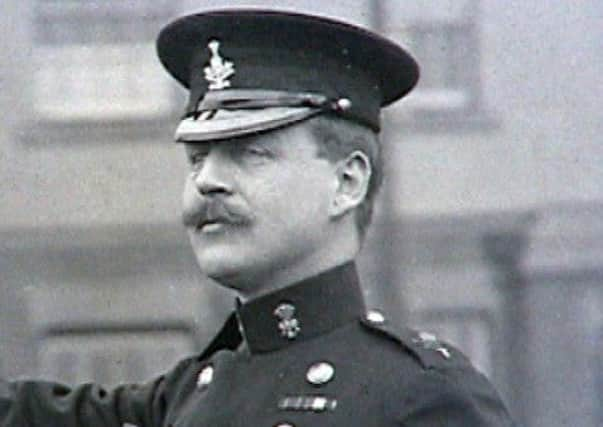The politicians who went to fight during the First World War


THESE days it’s usually politicians who send soldiers off to fight.
But a century ago, such was the sheer scale of the Great War that politicians themselves felt compelled to serve their king and country on the battlefields of Europe and the Middle East, and beyond.
Advertisement
Hide AdAdvertisement
Hide AdThe conflict claimed the lives of more than 20 MPs, including Charles Duncombe, 2nd Earl of Feversham and the Conservative MP for Thirsk and Malton, who was killed during the Battle of Flers-Courcelette in 1916.
Many other MPs saw active service and survived, although for some the war had a sting in its tail. Sir Mark Sykes, 6th baronet of Sledmere, who served as the Conservative MP for Hull Central for three years, was part of the British contingent sent to Paris in 1919 to work on the Treaty of Versailles, and it was here where Spanish flu claimed his life.
One of the many misconceptions surrounding the First World War is that the upper classes got off lightly, when in fact you could argue the opposite was true. Although the vast majority of casualties came from the working classes, the war took a heavy toll on the British establishment. Around 12 per cent of the British army’s ordinary soldiers were killed during the war, compared with 17 per cent of its officers.
Eton alone lost more than 1,000 former pupils and Herbert Asquith, Britain’s Prime Minister at the start of the war, lost a son, while the country’s future leader Andrew Bonar Law had two sons killed.
Advertisement
Hide AdAdvertisement
Hide AdIt is interesting to note that four men who went on to become Britain’s Prime Minister saw active service during the war: Winston Churchill, Clement Attlee, Anthony Eden and Harold Macmillan. For Eden victory came at a particularly high price, for he lost two brothers while another was seriously injured.
Simon Ball, professor of international history and politics at the University of Leeds, has written about these men and the impact the war had on them. Churchill’s road to the front was, he says, unique. He points out that Churchill began the war in the Cabinet, but after resigning in the wake of the disastrous Gallipoli campaign, he wangled his way into the command of a battalion of the Royal Scots Fusiliers in 1916, before returning to political office the following year.
“Attlee, Macmillan and Eden were part of the more conventional ‘Great War generation’, men on who fell the burden of frontline fighting,” he says. “All three volunteered. All three served as infantry officers, Attlee with the East Lancashire Regiment, Eden with the King’s Royal Rifle Corps, and Harold Macmillan with the Grenadier Guards.”
Prof Ball says there are some interesting post-war trends. “If you look at the service of those people who became MPs after the war then you see there was a disproportionate number of Conservatives.”
Advertisement
Hide AdAdvertisement
Hide AdAt the same time it’s worth pointing out that the Labour Party had been riven by clashes over the war – Ramsay MacDonald’s anti-war stance had forced him to resign as chairman of the Labour Party – while the conflict signalled the beginning of the Liberal Party’s demise.
Prof Ball says that during the 1920s politicians weren’t against reminding people of their war service. “Politicians of the Great War generation were happy to go by their military ranks, Major Attlee, Major Eden, Captain Macmillan, on the campaign trail.”
But he says the war, and the fact they were spared, compelled Macmillan and his contemporaries to do something meaningful with their lives. Not only that, but their experiences in the trenches gave them an insight into the lives of people they hadn’t fraternised with before. “This sense of public service and sympathy for the plight of the working man was a legacy of the war.”